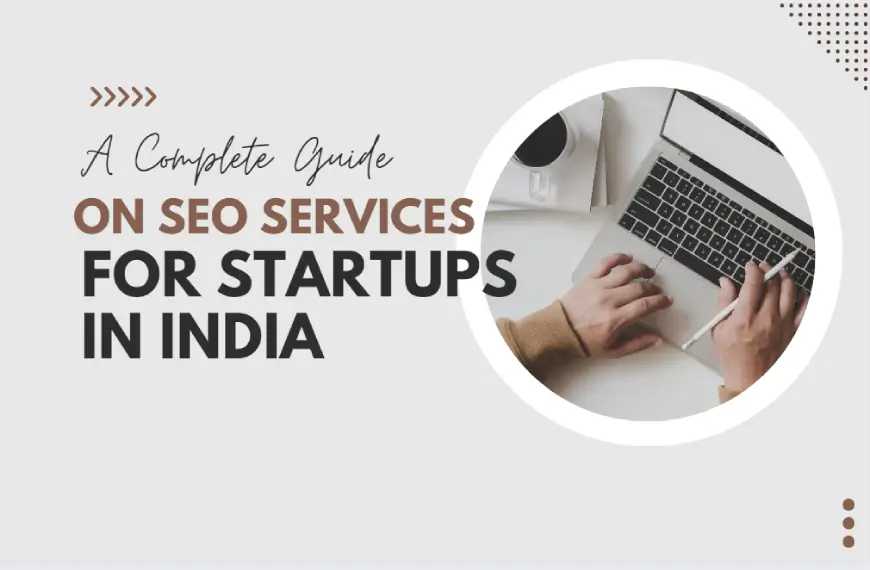Currently, it is the era of Indian startups. Many people are starting their own company. Some may get fed up with doing a continuous 9-6 job, some may want financial freedom, or whatever the reason is, startup culture is getting popular in India. Simultaneously, the need for an online presence is also increasing day by day.
If you’re a startup in India, you know how important it is to have an online presence as Indian people are more likely to shop online.
But reaching the right users and making them your potential customers is one hell of a task.
Never think that you are the only business owner in your niche. There might be a few or even hundreds of people who run a website in a niche that is similar to yours. That’s why it is harder to get traffic for your business. But, you can outshine your competitors through search engine optimization techniques for your startup.
If you don’t know how to do SEO for startups, it is a great skill that you can apply to increase your visibility, get more people to visit your website, and eventually grow your business.
Keep reading this complete blog to get tips and tricks on how SEO services can make your startup the next big thing.
Understanding the Concept of SEO for Startups
SEO or Search Engine Optimization is the practice of enhancing the visibility of a website on search engines such as Google, Bing, Yahoo, etc.
By optimizing various elements of the website, including keywords, content, user experience, and others, startups can increase their traffic that may become potential customers.
The first thing they need to do while doing SEO for their startup websites is to conduct a thorough website analysis to know what is performing well and what is not. Take help from the SEO tools, such as Ahrefs, Semrush, Ubersuggest, etc.
Once the website analysis is completed, the second thing you have to do is keyword research.
Keyword research is one of the most important SEO strategies for any business, whether it is a startup or an established one. After all, keywords are the words that people type into search engines to find information that is relevant to them.
By understanding and optimizing these keywords on their site, a startup can better connect with its target audience. But remember to find keywords from relevant niches or industries with higher search volume and lower keyword competition or difficulty.
Top SEO Practices for Startups Business
The process of Startup SEO can be done in the following ways.
1. On-Page SEO
The process of on-page SEO involves the optimization of elements directly on a website in order to enhance its ranking in search engine results. The following are some of the key elements to consider:
- Keyword Optimization
Include target keywords in your content in a natural manner, such as in titles, headings, and body text. Remember, the context of the content should not be changed.
Distribute the inclusion of keywords in an even way, which means you have to optimize the keywords in your web page from top to bottom, not just in the top, middle, or bottom portions.
Further, avoid keyword stuffing, meaning don’t put the keywords repeatedly too many times, as it can have a negative effect on your website rankings.
- Meta Tags Optimization
Write interesting meta titles and meta descriptions matching the main content of every page to easily grab the attention of users.
Include the relevant keywords in the content, and never forget to make your meta titles and meta descriptions within the prescribed limits.
Remember, these snippets rank higher in search results and have a big impact on click-through rates.
- User Engaging Content
Produce content for every page of your website with well-researched, relevant, and compelling information.
Understand the pain points of your target customers and how your products or services can benefit them.
Once you clear out everything, your startup company should produce blog posts, articles, and other types of content by focusing on the main objective which is to make your audience know about your product or services.
- Internal and External Linking
Linking relevant web pages not only makes it easier for people to find what they’re looking for but also tells search engines how trustworthy and relevant your content is.
So, whenever you believe that two web pages from your own website have a contextual relevance, interlink them. Besides, you can create external links as well when you find better and more relevant content for any portion of your content.
All in all, both internal and external links will help your websites from an SEO perspective.
2. Off-Page SEO
Off-page search engine optimization is all about doing things that don’t directly affect your website, but can still affect its reputation and authority online.
One of the most important things to do in off-page SEO is to earn high-quality backlinks, which are links from other highly authoritative and relevant websites to your own.
Below, we have mentioned a quick guide on how to do it.
- Content Creation
Create content that is useful for your own site and other websites with relevance to your niche. This way, you can earn backlinks from other relevant websites in your niche or industry.
Relevant and high-quality backlinks elevate your website to a higher ranking in Google’s search results. Generally, Google classifies each high-quality backlink as a vote of confidence, indicating that your website is authoritative in that particular niche.
- Guest Blogging
Guest blogging is an effective way to acquire quality backlinks. By contributing valuable content to well-known blog owners, marketing companies, or even other websites in your niche or industry, you have the chance to earn a backlink to your own site within the author’s bio or content itself, leading to great SEO value.
Publishing your guest post on a well-known site also helps you to a broader audience, which increases the likelihood of user engagement, resulting in more organic traffic towards your site.
Nevertheless, it is important to ensure that you are producing content that is of high quality, informative, and relevant, as this will help build a reputation and establish long-term relationships with other sites in your field.
- Outreach Influencers
If you’re looking to promote or do marketing for your startup, collaborating with influencers may help you greatly from an SEO viewpoint as well as brand promotion.
Influencer outreach involves finding and connecting with influencers in your industry or niche.
When they mention or share your content, products, or services, it usually leads to organic quality backlinks from their website, blog, or social media profile. This not only helps your website rank higher, but it also builds credibility and trust with the wider online community.
- Local SEO
Local SEO is a real game-changer for startups in India. With more and more people using their phones to search for things like “near me”, it’s important to make sure your website is optimized for local searches. This way, you can get more people to come to your physical store if you need foot traffic.
A. GBP Listing (Formerly known as Google My Business or GMB) – Create an account on Google Business Profile (GBP). Make sure your business info is correct, upload top-notch photos, and encourage your customers to share their experiences online as reviews.
B. Local Citations – Create accounts on other local citation sites as per your niche or industry.
Make sure your business name, address, and telephone number are the same in all online directories to build trust and enhance local search visibility.
- Social Media Engagement
Create popular social media channels that your target audience may use the most and implement the links on your site.
Some of the most popular social platforms for Indian users are Facebook, Instagram, YouTube, Twitter, Snapchat, Linkedin, and Pinterest.
Share insightful content and interact with your followers regularly. It helps you indirectly get more backlinks when they share your content on their channels.
Even though these social signals may not have a direct effect on rankings, a robust social media presence can help your startup grow.
3. Technical SEO
When you are running a startup in India, technical SEO is all about making sure your website is optimized for search engines and provides a great user experience.
You have to make sure your website is crawled and indexed properly. It means that your site is fast, XML sitemaps are up-to-date, content is not duplicated, making sure the website is opening with the HTTPS protocol, website is mobile-friendly, and more.
All of these things will help your website rank higher in search engines, bring in more organic traffic, and give you a strong online presence that will help your startup become the next big thing in the Indian market.
Conclusion
SEO is a great way for startups in India to stand out in the digital world.
By understanding the ins and outs of keyword research, on-page, off-page, and technical SEO, you can create a strong SEO strategy that will boost your online presence and help you grow for years to come.
Keep in mind that doing SEO for startup businesses is a lengthy process to get results.
So, it’s important to be patient, adjust to changes in algorithms, and keep improving your approach to stay ahead of your competitors and grow your business.
FAQ
SEO plays a vital role in helping Indian startups establish a strong online presence, attract potential customers, and outshine competitors in a competitive market.
Through keyword research and optimization, startups can align their content with what their audience is searching for, increasing the chances of attracting relevant visitors to their website.
On-page SEO involves optimizing content elements like keywords, meta tags, and user-engaging content. It’s crucial to maintain keyword distribution and avoid keyword stuffing.
Technical SEO ensures that a startup’s website is optimized for search engines and provides a seamless user experience, helping it rank higher, attract organic traffic, and establish a strong online presence.



Add a Comment